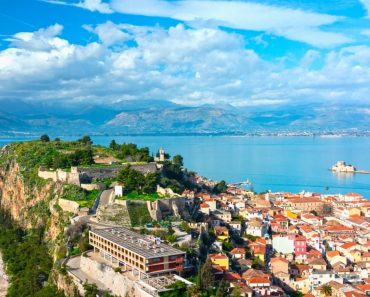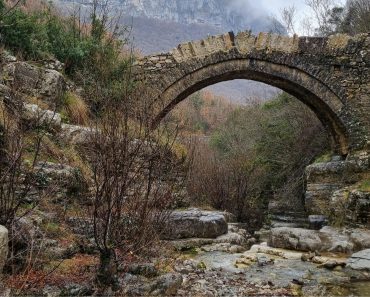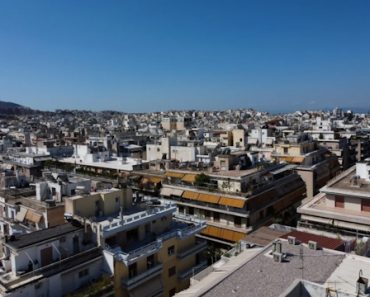ATHENS – The funeral of Dionysis Savvopoulos on October 25 at the Metropolitan Cathedral of Athens gathered a large crowd of people – artists, representatives of the State, and admirers of the great creator.
Among them was Prime Minister Kyriakos Mitsotakis, who delivered a moving eulogy, as well as top government officials such as Nikos Dendias, Adonis Georgiadis, Giorgos Gerapetritis, Lina Mendoni, and Niki Kerameus.
However, the most resounding message of the day came not from those present, but from those absent.
The absence of almost all the leaders of the opposition did not go unnoticed. The only exception was the president of ‘Plefsi Eleftherias’ (Course of Freedom), Zoe Konstantopoulou, who went to the Cathedral and honored Savvopoulos with her presence. From PASOK were present Kostas Tsoukalas, Anna Diamantopoulou, Konstantinos Laliotis, the mayor of Athens Haris Doukas, and the regional governor of Attica Nikos Hardalias, as well as historic figures of that political space such as Stefanos Tzoumakas, Maria Damanaki, and Mimis Androulakis.
The absence of the leadership of the Left from Dionysis Savvopoulos’s funeral was not merely a formal cultural omission; it was an act of deep symbolism. It showed that, sixty years after his first appearance in the musical scene, the ‘Savvopoulos of the times’ continues to provoke, to divide, to reopen wounds. The artist who once sang the anxieties of a generation, who became the voice of post-junta freedom, and who through his songs expressed the psyche of the Greek Left of the ’60s and ’70s, did not receive a place – not even a flower – from those who once idolized him.
Their silence was not accidental. It was punitive. Because the Left never forgave Savvopoulos for having ‘strayed’. For having left behind the romanticism of the “youth with the hair in front” and for speaking about individual responsibility, about the need for the country to move forward without illusions. For having dared to become critical toward the very camp that had elevated him.
For the generation of the ‘Metapolitefsi’ (post-junta era), Savvopoulos was not merely a songwriter. He was something like a mirror. When he wrote ‘To Fortigo’ (The Truck) and ‘O Ballos’, he was singing the inner turmoil of the Left emerging from prison and exile.
Later, when he produced ‘Acharneis’ and ‘Vromiko Psomi’ (Dirty Bread), he became the poet of social protest. But from a certain point on, he changed. He began to see the country differently – more maturely, more realistically. He spoke about the need for self-criticism, about the decay of ideologies, about the petite bourgeois ease with which the Greek Left idolized slogans while avoiding responsibility.
Savvopoulos’ transformation was not toward power, as some accused him of, but toward realism. Yet for the Left, this shift was ‘betrayal’. Especially when, during the years of the Memoranda, Savvopoulos spoke in favor of Greece’s European path, when he placed democracy and responsibility within the same frame, when he criticized the poison of populism. For many, that was the end of him.
The Left – or rather what remains of its old self – never forgave him for refusing to remain the symbol of an ‘eternal rebellion without destination’. It wanted Savvopoulos to be ‘one of its own’, steadfastly against ‘the system’. But instead of preserving the myth, he turned and said to it, face to face: “The system is us.” He said it in his own way, with the irony and sweetness that always marked his speech. But the message got through – and it stung.
The absence of representatives of the Left from his final farewell was not simple forgetfulness. It was a silent ‘no’ to a man who refused to remain in their hagiography. In Greece’s climate of cultural conformity, where artists are expected to align with the political norms of the time, Savvopoulos remained defiant. And for that, nothing was forgiven him.
The same people who once sang his songs in the Polytechnic marches, who grew up with O Ballos and ‘Rezerva’, turned their backs on him the moment he felt the need to express himself outside their framework. They accused him of ‘identifying with power’, of ‘forgetting his roots’. And yet, he never forgot them. He spoke of homeland, of identity, of Greek culture – not as ideology, but as lived truth.
But that, the Left could not bear. Because he was no longer the voice of the indignant student, but of the mature citizen who saw decline and named it. He did not want to be ‘the singer of the movement’, but a mirror to a society that had lost its orientation.
The problem was not that Savvopoulos ‘changed’. The problem was that the Left stayed the same. It cannot tolerate differentiation or ideological adulthood. It prefers the symbolic artist to the man with opinions. It wants you to belong – to take a side, for or against. Savvopoulos no longer fit into that binary.
His funeral revealed something greater than the absence of certain individuals: it revealed the rupture of an entire tradition with the creator who had once embodied it. Savvopoulos was perhaps the last great narrator of 20th-century Greece – the poet who combined Theophilos with Bob Dylan, Victoria Square with Brecht. And yet, in the end, he departed as a ‘stranger’ within the very movement that had nurtured him.
History, however, has its own way of restoring balance. Because, no matter how much they tried to ‘punish’ him with their silence, his voice does not fade. His songs are already part of our collective consciousness – not of the Right or the Left, but of the Greek soul itself. And perhaps, ultimately, that is what is most unbearable for those who did not bid him farewell: that Savvopoulos defeated time, while they remained trapped in their slogans.
At the end of the day, Savvopoulos did not belong to anyone. Neither to the Left nor to the Right. He belonged to Greece – the Greece that hurts, laughs, mocks itself, and persists. And for that reason, the absence of party wreaths at his funeral may have been the most honest recognition of all: that ‘Nionios’ lived and departed free.







